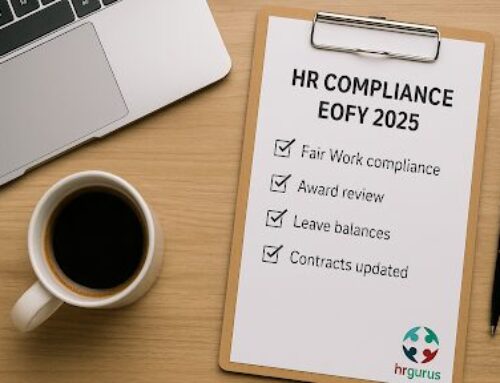It’s 2024, and the Fair Work Act’s definition of a small business—fewer than 15 employees—is stuck in the past. In the real world, this definition doesn’t just look outdated; it actively holds back businesses that should have every chance to grow and thrive. Right now, business groups, led by the Australian Chamber of Commerce and Industry (ACCI) and supported by heavyweights like the Ai Group, are pushing to bump the small business cap up to include those with up to 25 employees. Makes sense, right? But the government’s standing firm, claiming it’s “protecting jobs.”
Let’s break it down—this isn’t about making it easier to “sack” people; it’s about letting businesses breathe.
Why the Definition Matters: A Bureaucratic Stranglehold
As it stands, if a business has 15 or more employees, they lose small business protections and get hit with the full weight of compliance regulations. We’re talking about unfair dismissal laws, mandatory redundancy pay, and a tidal wave of other requirements. For a company with 20 employees, that’s no small load; it’s a bureaucratic nightmare that kills any hope of flexibility.
And who’s asking for this change? It’s not just the suits in big business—this is coming from the frontline. ACCI CEO Andrew McKellar puts it bluntly: without a change, small businesses are drowning in red tape. Innes Willox, Chief Executive of Ai Group, even described the current rules as “ham-fisted and outdated.” These aren’t unreasonable demands; they’re desperate calls for common sense.
The Real Cost of Compliance: What’s Holding Businesses Back
Imagine a small business—let’s say they have 18 staff. They’re getting squeezed by compliance requirements on everything from hiring to firing to payroll. That’s more admin, more costs, and fewer hours spent on actually growing their business. Expanding the definition would give these businesses some breathing room to focus on what matters—creating jobs, boosting productivity, and contributing to the economy.
Instead, they’re bogged down. That’s why small-business owners have mixed feelings. They know that, in theory, including a few extra staff in the definition doesn’t make them a big corporation, but the Fair Work Act treats them as if they are. Business owners like Matt Little, founder of Festoon House, get it—he’s in favour of unifying the definition to streamline compliance, despite the fact that it might mean increased competition for grants and reduced tax breaks.
So, Why the Government Pushback?
Minister for Employment and Workplace Relations Murray Watt insists that expanding the definition would lead to job losses. “The last thing we should be doing is making it easier for businesses to sack people,” he said recently. But let’s get real—this isn’t about mass layoffs. This is about giving genuinely small businesses a chance to run with a bit more flexibility. Keeping the bar at 15 employees doesn’t stop people from getting fired; it just makes it harder for businesses to operate sustainably.
Getting on the Same Page: A Small Business Identity Crisis
One of the most frustrating parts? There isn’t even a consistent definition of a “small business” across different agencies. Deakin University’s Pete Williams calls it an “identity crisis.” The ATO, ABS, Fair Work, and other regulatory bodies have slightly different ideas of what counts as small. Aligning these definitions would clear up confusion and allow small-business owners to navigate regulation without needing a lawyer at every turn.
The Bottom Line
This push to redefine small business in the Fair Work Act isn’t about stripping workers of their rights. It’s about allowing small businesses to grow without being strangled with endless regulations. By updating the definition to include businesses with up to 25 employees, we’d be giving SMEs a lifeline—a bit of flexibility, less red tape, and a fair go.
Australia’s small businesses deserve better.
I full support dropping the outdated definitions and empowering SME’s to compete on a level playing field. If we want to see jobs, investment, and a thriving economy, it’s time to get real about what small businesses need to succeed.
Written By Emily Jaksch
Continue Reading
Get a personal consultation.
Call us today at 1300 959 560.
Here in HR Gurus. We make HR simple because it should be.





